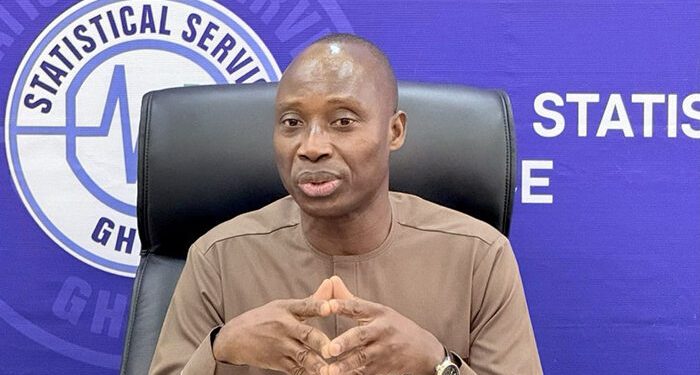Ghana’s economy took a notable step toward stability in September 2025, as year-on-year inflation fell to 9.4% — the lowest level in more than three years. But even as the headline figures signal relief, the Ghana Statistical Service (GSS) has issued a clear warning: sustaining disinflation requires discipline and collective effort across households, businesses, and government.
Presenting to stakeholders in Accra, Government Statistician Dr Alhassan Iddrisu emphasised that Ghana must avoid complacency if the downward trajectory of inflation is to endure. Instead, he set out practical measures tailored to each sector of society, aimed at embedding resilience and safeguarding recovery.
Dr Iddrisu’s advice to households was simple but critical: “Take advantage of the falling inflation to plan ahead.” Families, he said, should use this period to budget wisely, avoid unnecessary consumption, and cultivate savings – however modest – to shield themselves from potential price shocks in the future.
“With inflation easing, real incomes are improving, but that does not mean vulnerability has disappeared. Households must prepare for possible volatility,” he explained.
Turning to the business community, the GSS urged firms to treat the disinflation period as a window of opportunity. Companies were advised to:
- Invest in efficiency and local supply chains while input costs are more stable.
- Reduce waste and strengthen sourcing from domestic producers to cut import exposure.
- Pass cost savings to consumers where feasible, to build trust and foster competitiveness.
“These strategies will not only lock in margin gains but also position businesses for stronger growth as the economy stabilises,” Dr Iddrisu noted.
For policymakers, the GSS called for unwavering fiscal discipline, alongside targeted investment in food security and infrastructure.
Key priorities outlined included:
- Keeping food prices stable through better storage, irrigation systems, and transport networks.
- Addressing regional disparities, ensuring all parts of the country benefit from falling prices.
- Sustaining fiscal consolidation to reinforce investor confidence and macroeconomic stability.
Dr Iddrisu stressed that these actions are vital to prevent inflation from rebounding and to ensure disinflation translates into broader economic benefits.
While the decline to 9.4% inflation reflects progress in Ghana’s economic management, the GSS underscored that the gains remain fragile. Maintaining stability will demand coordinated action across society.
“The path ahead is narrow but promising,” Dr Iddrisu concluded. “If households save, businesses become more competitive, and the government stays disciplined, Ghana can turn this disinflation into lasting recovery.”
Click the link Puretvonline.com | WhatsApp Channel to join the WhatsApp channel
GOT A STORY?
Contact/WhatsApp: +233243201960 or manuelnkansah33@gmail.com

